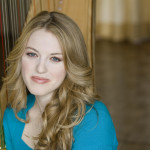
When I started out, I learned at least three to four new tunes a week. I transcribed a lot of tunes and made my own arrangements at a level that I could play without worrying about how difficult they were. Many of the songs were lead sheets, so I could play them simply or very ornately, according to my mood. Begin building your concert repertoire with pieces you could get “concert ready” in just a few days. If you establish your foundation of repertoire and then add pieces to that set, you will have a few different programs you could play when asked without too much stress.
Work on your reading skills, think about the harmony and form for each piece, and use sections that are more challenging as your technical workout. By playing your music many times in many settings, you will be able to maintain the pieces you add to your selection of music!
—Felice Pomeranz, Boston, Mass.

The first step to building and maintaining repertoire is to get organized. Keep a running list of all of the pieces you have learned. In your daily practice, spend about 20 percent of your time running through some portion of your repertoire. Some pieces may need to be reviewed each week, while others you may only need to practice once a month. If time is short, challenge yourself to only go over the tricky passages.
One great motivator to establishing your repertoire is to perform! If you have a concert coming up, you might not have time to run your entire program each day. One method that has worked well for me is to number each piece of your program. On the first day, practice pieces 1, 2, 3. The next day, practice pieces 2, 3, 4. The next day, practice pieces 3, 4, 5, and so on. Once you have performed a concert of these pieces, try to incorporate a new piece on your next concert. Before long you’ll have a nice variety of pieces that can be performed on short notice.
—Carolyn Munford, Atlanta, Ga.

When building a large body of repertoire, whether in preparation for a recital, competition, audition, or other project, I have found it very helpful to keep a practice journal wherein I log my progress on each piece and keep track of my checkpoints and goals along the way. Keeping a written log of my work holds me accountable to my practice schedule, and also helps me to focus on the efficacy of specific practice techniques.
Once that body of repertoire is built, maintenance is the next challenge. If you have a lot of repertoire that is simply too much to play on a single day, organize an alternating schedule of pieces for “A” days and “B” days. You can also try playing through repertoire at very different times of the day, when you’re tired, when you feel fresh, when you’ve just come back from the gym, early in the morning, late at night, etc. This is an excellent test of how well you’re able to focus and engage with that music, no matter the situation. •
—Michelle Gott, Ottawa, Canada














